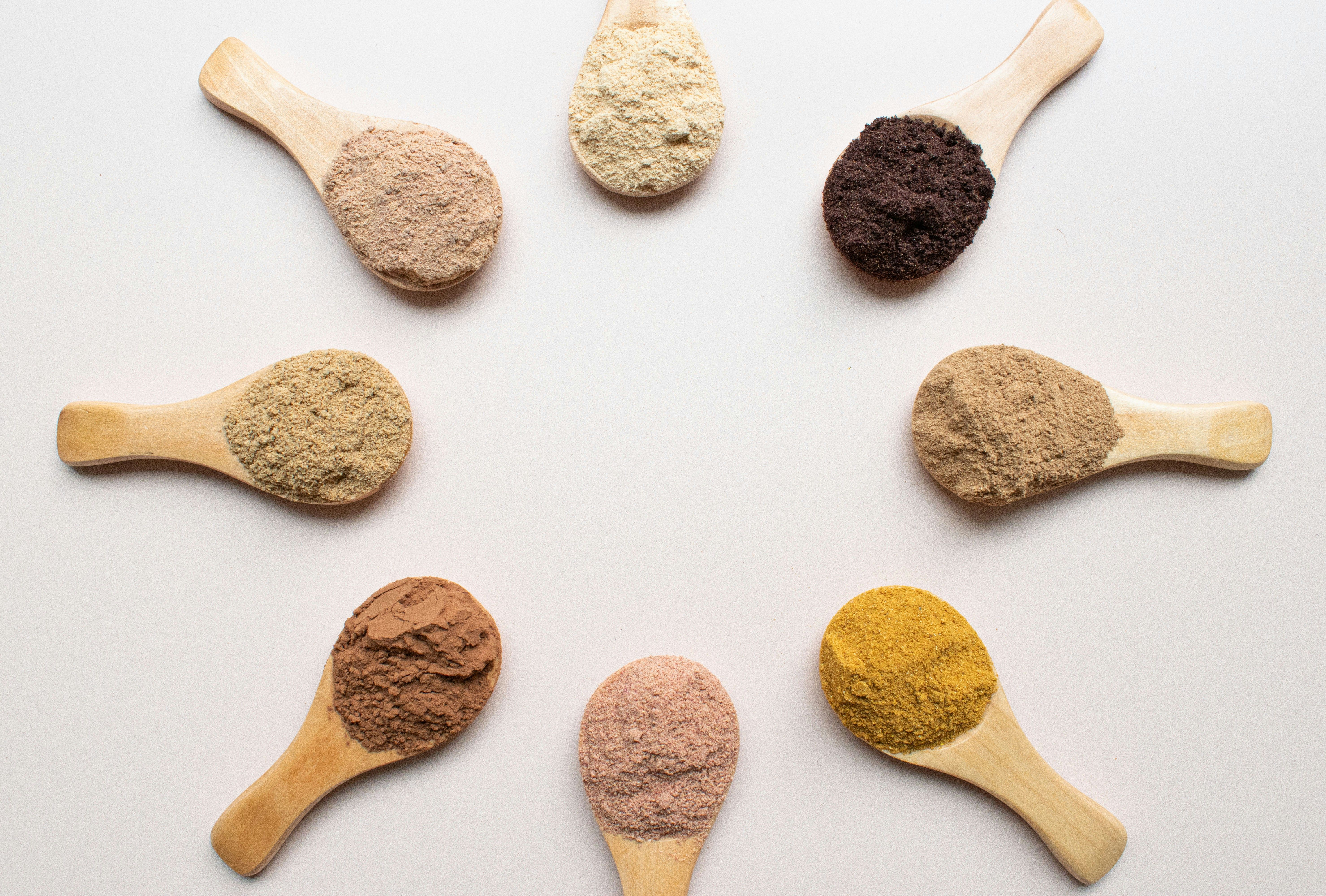
Uncover the Secrets of Longevity: Nutrition, Supplements and Tips for a Long Life
In the quest of a more long-lived and healthy life, it is necessary to know what causes longevity. The average human lifespan in the United States is ...

In our fast-paced world, maintaining women’s health is crucial, especially for those juggling multiple responsibilities. While a balanced diet is important, dietary supplements have become valuable allies in supporting women’s wellness. These include options for weight management, increasing protein intake, and addressing various health concerns.
For weight loss, thermogenic supplements, appetite suppressants, and fat burners can aid in calorie control and fat burning. Protein supplements like whey, casein, and plant-based powders provide a concentrated source of high-quality protein for muscle recovery and satiety.
Beyond weight and protein, specialized supplements target hormonal balance, prenatal/postnatal needs, bone health, and cardiovascular support. However, supplements should not replace a nutritious diet and should be chosen carefully in consultation with healthcare professionals.
While supplements offer benefits, moderation and guidance are key to leveraging their potential safely and effectively in supporting women’s overall well-being amidst the demands of modern life.
Super supplements have become popular due to their broad range of health benefits. Such powerhouse supplements are often multi-faceted and packed with essential vitamins, minerals, antioxidants as well as other nutrients meant to tackle various aspects of health. They can support the immune system as well help women improve their skin quality.
Selecting the right supplements can indeed be a game-changer for women on their weight loss journey. When it comes to effective weight management, certain supplements can provide a significant boost by targeting key areas such as metabolism, appetite control, and energy levels. Here are some facts, numbers, and stats on popular weight loss supplements:
It’s important to note that while these supplements can be effective when combined with a healthy diet and regular exercise, individual results may vary. Additionally, it’s crucial to consult with a healthcare professional before starting any new supplement regimen, as some may interact with medications or have potential side effects.

Protein is indeed the foundation of a healthy diet, playing a crucial role in various bodily functions, including muscle repair, metabolism, and overall fitness. For women, especially those engaged in frequent physical activity, protein supplements can be invaluable in meeting their elevated protein needs and supporting their active lifestyles.
Whey protein, derived from milk, is one of the most popular and extensively researched protein supplements. It is a complete protein, containing all the essential amino acids necessary for muscle growth and repair. Studies have shown that whey protein can effectively support muscle protein synthesis, aid in recovery after exercise, and promote muscle growth and maintenance when combined with resistance training.
Plant-based protein supplements, such as those derived from pea, soy, or rice, have gained popularity among vegans, vegetarians, and those with lactose intolerance or dairy allergies. While not all plant-based proteins are complete, combining different sources can provide a comprehensive amino acid profile. These supplements have been found to be effective in supporting muscle growth and recovery, especially when consumed in adequate amounts.
Collagen protein supplements, derived from animal sources, have gained attention for their potential benefits in supporting skin health, joint function, and bone density. Collagen is the most abundant protein in the human body, and its production naturally declines with age. Supplementation with collagen peptides has been shown to improve skin elasticity, hydration, and reduce the appearance of wrinkles. Additionally, collagen supplements may help alleviate joint pain and improve bone mineral density, particularly in postmenopausal women.
Beyond muscle building and repair, protein supplements can also contribute to hormonal balance in women. Adequate protein intake has been linked to improved insulin sensitivity, which can help regulate hormones associated with polycystic ovary syndrome (PCOS) and other hormonal imbalances.
It’s important to note that while protein supplements can be valuable additions to a woman’s diet, they should not be viewed as a replacement for whole, nutrient-dense foods. Consulting with a healthcare professional or a registered dietitian can help determine the appropriate type and amount of protein supplementation based on individual needs, goals, and dietary preferences.

Mental health is indeed an integral part of overall well-being, and it is crucial to prioritize it alongside physical wellness to achieve a balanced and harmonious state. For women striving to cope with the stresses of modern life, anxiety-relieving supplements can serve as supportive tools in their journey towards a more peaceful equilibrium.
Omega-3 fatty acids, found primarily in fatty fish, nuts, and seeds, have gained recognition for their potential benefits in alleviating anxiety and improving mood. Numerous studies have suggested that omega-3 supplementation may help reduce symptoms of anxiety and depression, possibly by modulating inflammatory pathways and neurotransmitter function.
Magnesium, an essential mineral, plays a vital role in regulating stress response and promoting relaxation. Magnesium deficiency has been linked to increased anxiety and stress levels. Supplementation with magnesium has been shown to have anxiolytic (anxiety-reducing) effects, potentially by modulating the activity of the hypothalamic-pituitary-adrenal (HPA) axis, which is involved in the body’s stress response.
Adaptogens, a class of herbs and plant compounds, have been traditionally used to help the body adapt to stress and promote a sense of balance. One of the most well-known adaptogens is Ashwagandha (Withania somnifera), an ancient herb with a long history of use in Ayurvedic medicine. Studies have demonstrated Ashwagandha’s potential to reduce stress, anxiety, and cortisol levels, while also improving overall well-being.
Other adaptogenic herbs like Rhodiola rosea, holy basil (Tulsi), and Schisandra chinensis have also shown promising results in supporting the body’s response to stress and promoting a sense of calm and mental clarity.
It is important to note that while these supplements may offer potential benefits, they should not be viewed as a substitute for professional medical treatment or counseling, particularly in cases of severe anxiety or other mental health conditions. Additionally, it is advisable to consult with a healthcare professional before starting any new supplement regimen, as they may interact with medications or have potential side effects.
By incorporating anxiety-relieving supplements like omega-3 fatty acids, magnesium, and adaptogens into a holistic approach that includes stress management techniques, regular exercise, and a balanced diet, women can strive to create a more peaceful equilibrium and support their overall mental well-being.
Women’s healthcare needs evolve throughout different life stages, and selecting appropriate supplements to address specific concerns becomes essential for maintaining overall well-being. Here’s how certain supplements can help with hormonal balance, bone health, and reproductive support:
It’s important to note that while these supplements can be beneficial, they should be considered complementary to a balanced diet and a healthy lifestyle. Consulting with a healthcare professional, such as a gynecologist or a registered dietitian, is advisable to determine the appropriate dosages and ensure that the supplements do not interact with any existing medical conditions or medications.
Additionally, it’s crucial to purchase supplements from reputable sources and follow the recommended dosages, as excessive intake of certain nutrients can lead to adverse effects.
By incorporating the right supplements at the appropriate life stages, women can proactively support their unique healthcare needs, promote hormonal balance, maintain bone health, and nurture their reproductive well-being.
While supplements can be highly beneficial for women’s health, their usage must be balanced and thoughtfully planned. Here are some key considerations regarding responsible and effective supplementation:
Consult Healthcare Professionals: It is crucial to consult with healthcare professionals, such as physicians, gynecologists, or registered dietitians, before starting any supplement regimen. They can assess an individual’s specific needs, health conditions, and medications to ensure that the supplements are appropriate, safe, and will not cause any adverse interactions or side effects.
Avoid Over-Supplementation: Taking excessive amounts of certain nutrients through supplements can potentially lead to toxicity or other health issues. Healthcare professionals can advise on appropriate dosages based on individual requirements, age, and existing nutrient levels.
Prevent Nutrient Imbalances: Supplements should complement a balanced diet, not replace it entirely. Over-supplementing with certain nutrients while neglecting others can create nutrient imbalances, which can be detrimental to overall health.
Consider Life Stage and Specific Needs: Women’s nutritional needs vary throughout different life stages, such as pregnancy, lactation, menopause, and beyond. Healthcare professionals can recommend supplements tailored to specific needs during these phases.
Choose Quality Supplements: Not all supplements are created equal. It is essential to choose high-quality supplements from reputable brands that adhere to strict manufacturing standards and undergo third-party testing for purity and potency.
Read Labels Carefully: Always read supplement labels carefully, paying attention to ingredient lists, dosages, and any potential allergens or interactions.
Monitor and Adjust: Regularly monitor the effects of supplements and consult with healthcare professionals to adjust dosages or discontinue use if necessary.
By following a balanced and thoughtful approach to supplementation, under the guidance of qualified healthcare professionals, women can leverage the benefits of supplements while minimizing potential risks and ensuring their specific needs are met effectively.
In today’s fast-paced world, women face numerous demands on their health and well-being. While a balanced diet remains the foundation of good nutrition, supplements can be valuable allies in supporting various aspects of women’s health, from weight management and hormonal balance to bone strength and reproductive support. However, it is crucial to approach supplementation with care and wisdom.
Consulting with healthcare professionals, such as physicians, gynecologists, or registered dietitians, is essential to ensure that supplements meet individual needs, are safe, and do not cause any adverse interactions or nutrient imbalances. Quality matters, so choosing reputable brands and following recommended dosages is vital.
Ultimately, supplements should complement a well-rounded diet and healthy lifestyle, not replace them entirely. By thoughtfully integrating the right supplements at appropriate life stages and under proper guidance, women can proactively nurture their unique healthcare needs, promoting overall wellness and thriving in all aspects of their lives.
A: Supplements can help bridge nutritional gaps and provide essential nutrients that may be lacking in a woman’s diet. They can support various aspects of health, such as weight management, bone density, hormonal balance, and reproductive well-being.
A: Some commonly recommended supplements for women include:
A: No, supplements should not replace a balanced, nutrient-rich diet. They are meant to complement a healthy diet and lifestyle, not serve as a substitute.
A: Not necessarily. Supplement needs can vary based on age, life stage, health conditions, and dietary habits. It’s best to consult with a healthcare professional to determine if supplements are necessary and in what amounts.
A: While generally safe when taken as directed, some supplements may interact with medications or have side effects, especially when taken in excessive amounts. It’s important to follow dosage recommendations and seek professional advice.
A: Look for supplements from reputable brands that adhere to strict manufacturing standards and undergo third-party testing. Read labels carefully, and consult with healthcare professionals or registered dietitians for recommendations on reliable products.

In the quest of a more long-lived and healthy life, it is necessary to know what causes longevity. The average human lifespan in the United States is ...

Today, in an era where health consciousness is on the rise, intermittent fasting has gained immense popularity among people striving not only for weig...